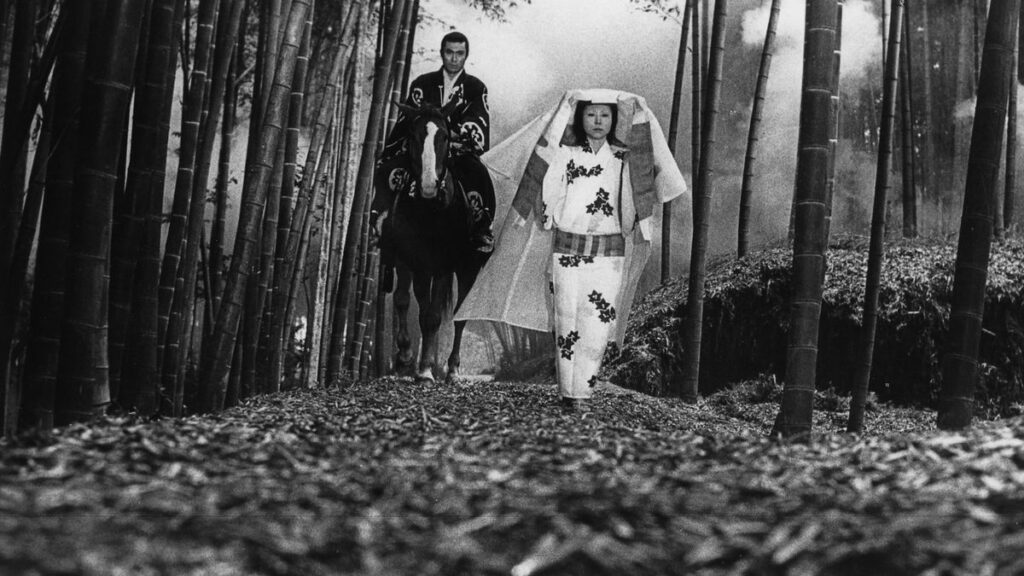Classic Film: Kuroneko
Written by Ian Thomas Malone, Posted in Blog, Movie Reviews, Pop Culture
The horror genre yields its greatest triumphs when able to crawl under the audience’s skin. A rational mind can understand that ghosts are not exactly real, but a skilled director knows how to craft tension so palpable that reality can be tossed right out the window. Fear needs no justification.
The 1968 film Kuroneko deals with tragedy on a level that you almost feel claustrophobic watching the narrative unfold. Yone (Nobuko Otowa), a mother, and her daughter-in-law Shige (Kiwako Taichi) are brutally raped and murdered in their home by samurai, a black cat serving as the only witness. Though the samurai burn the house down, a mansion later appears in its place. Subsequent samurai who seek respite on the premise are greeted by Yone and Shige, who seduce them before tearing their throats out.
Yone’s son Gintoki (Kichiemon Nakamura) is off fighting battles elsewhere in Japan. The narrative reveals that he was conscripted to fight at an early age, eventually rising to samurai during the events of the narrative. Gintoki hopes to return home to see his wife and mother, unaware of their gruesome murder, or their plans to punish any samurai who cross their path.
Director Kaneto Shindo offers a sleek take on the kaibyō genre with a chilling exploration of vengeance’s corrosive effect on the soul. Gintoki finds himself in the midst of a nature vs. nurture debate that’s so warped that it doesn’t really care about justice. Morality hasn’t exactly exited the equation completely, but the sheer brutality of the events that set off the narrative makes it hard to attach the villain label toward spirits who maybe got a little too caught up in their efforts to right an egregious wrong.
Kuroneko is often quite uncomfortable to watch, but the beautiful Tohoscope style cinematography makes for a captivating viewing experience through the 99-minute runtime. Shindo shows off his technical prowess repeatedly with subtle moments that jump out of nowhere. The film’s scares never make you jump out of your seat, but the dramatic tension leaves you feeling quite drained by the time the credits roll.
The screenplay keeps its characters at arm’s length from the audience. Gintoki is so influenced by those around him, both the spirits and his commanding officers, that he never quite settles into the role of the protagonist, instead the object of his family’s carnal rage. Taichi’s Shige is essentially the true emotional core of the film, caught between the spirit world and the memory of her true love.
Some deeds are so tragic and unthinkable that they can never be made whole. Film is often reluctant to explore that reality. There are no easy outcomes for the events of Kuroneko. Shindo delivers a triumph of the horror genre as he explores his painful themes.











